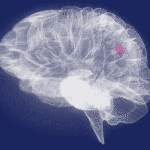Toddlers diagnosed with autism should be reevaluated over time

Parents whose child has been diagnosed with autism spectrum disorder (ASD) may feel it’s a lifelong label. But a new study offers hope: It found that 37 percent of children diagnosed as toddlers no longer met criteria for autism when they reached early school age. Findings were published October 2 in JAMA Pediatrics.
Study leader Elizabeth Harstad, MD, in the Developmental Medicine Center at Boston Children’s Hospital, believes this finding indicates that children with autism aren’t all alike and can have a variety of developmental trajectories.
“That’s empowering information for families,” she says. “Our findings suggest that children should be reevaluated periodically to assess their progress.”
Yet the study, called Boston Outcomes of Autism in Toddlers (BOAT), also raises questions about the need for better interventions. Of the 213 children in the study, 94 percent had autism-specific interventions. In almost all cases, this was Applied Behavioral Analysis (ABA), an intensive intervention widely used since the 1990s and considered the standard of autism care. The team did not find any relationship between the persistence of autism and the intensity of interventions during the first 18 months after diagnosis, when interventions are thought to be most helpful.
“These findings call for far more research and investment to understand if the current treatment for autism is truly working for all kids,” says William Barbaresi, MD, the study’s senior investigator and chief of Developmental Medicine at Boston Children’s. “We continue to recommend treatment, but we need to seriously consider whether new approaches are needed.”
The researchers hope to conduct a much larger study on ASD outcomes, which could include a more detailed investigation into which interventions work best for which kids. In the BOAT study, ABA interventions were conducted by a variety of providers in the community.
Rethinking autism assessment and treatment
The 213 children were initially diagnosed with autism as toddlers by trained clinicians at Boston Children’s using the Autism Diagnostic Observation Schedule (ADOS), an accepted, gold-standard diagnostic method.
“Although the children may have met diagnostic criteria initially, our study suggests that an autism diagnosis in a child less than 3 years old may not persist,” says Barbaresi. “This may be because of child-specific factors.”
For example, in the study, children with persisting autism symptoms at age 5 to 7 tended to be those with lower adaptive functioning skills (such as self-help, communications, and safety skills). Some who no longer met ASD criteria had received other diagnoses, like anxiety or attention deficit hyperactivity disorder (ADHD).
Harstad encourages parents and caregivers to remain open to the possibility of evolving diagnoses as a child develops.
“In the autism world, there’s been an emphasis on diagnosing children at a young age,” says Harstad. “Our research shows how important it is to monitor kids over time, because some may have changes in their social communication and behavioral function.”
Learn about care in the Autism Spectrum Center at Boston Children’s.
Related Posts :
-

Making autism evaluations accessible: Boston Children's tests virtual options
At this time the virtual autism diagnosis program is only available to internal Boston Children's Hospital primary care patients who ...
-

Rethinking the need for ADOS testing to diagnose autism in young children
The Autism Diagnostic Observation Schedule, or ADOS testing, was developed in the 1980s as a tool for autism research. Through ...
-

Treating brain 'hotspots' and networks to address autism, aggression, and more
What if doctors could break down conditions like autism into their key symptoms, map these symptoms to “hotspots” in the ...
-

‘Mosaic’ gene mutations could explain some cases of autism
The causes of autism remain mysterious. Scientists have linked autism spectrum disorder to a long list of genes, but most ...





